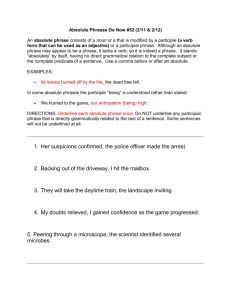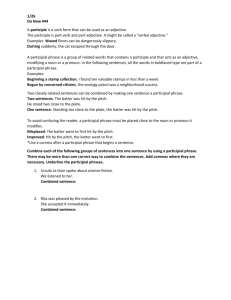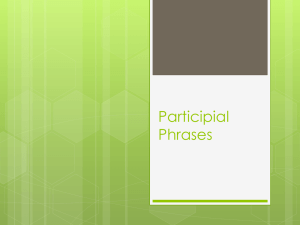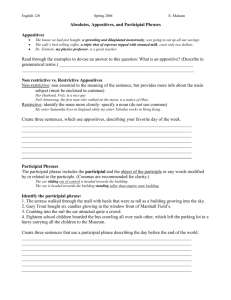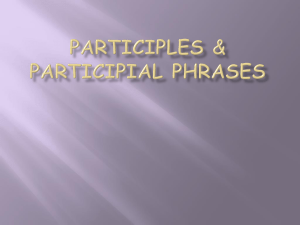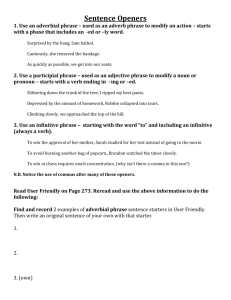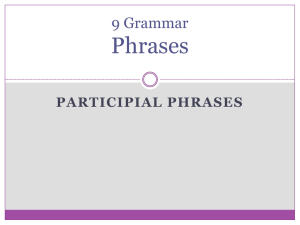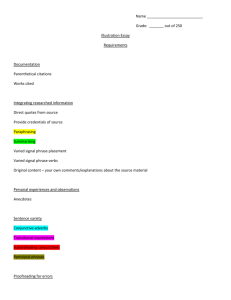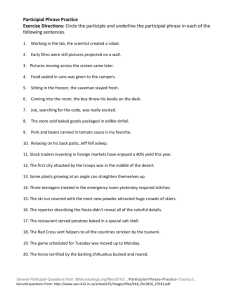Participial Phrases: Grammar Worksheet
advertisement
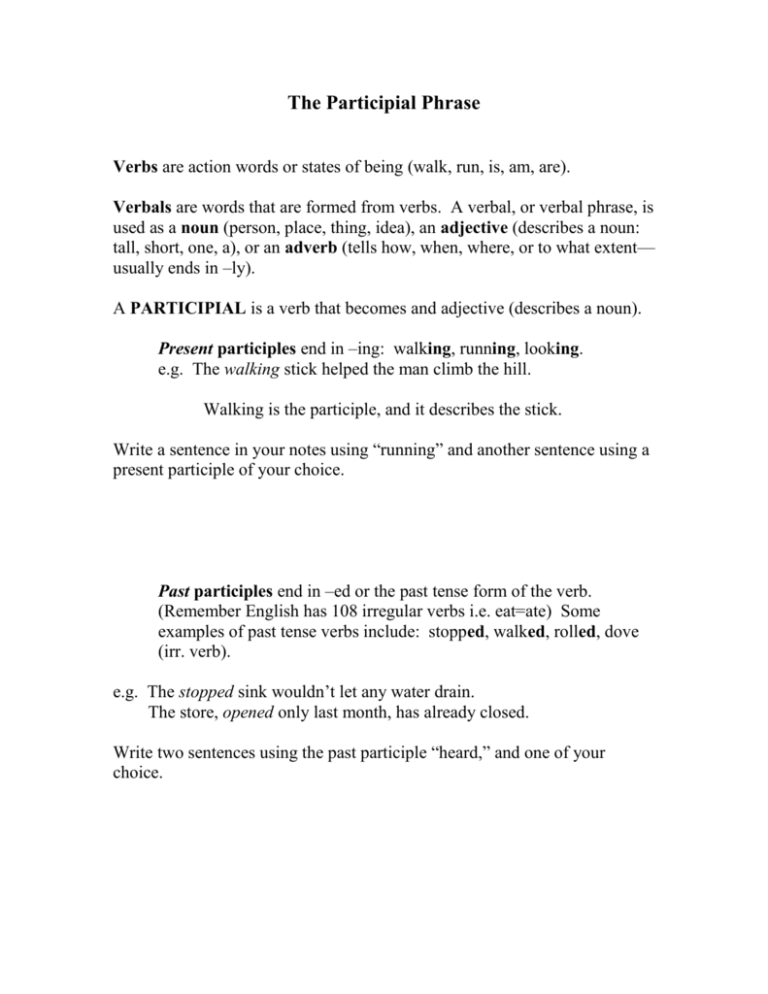
The Participial Phrase Verbs are action words or states of being (walk, run, is, am, are). Verbals are words that are formed from verbs. A verbal, or verbal phrase, is used as a noun (person, place, thing, idea), an adjective (describes a noun: tall, short, one, a), or an adverb (tells how, when, where, or to what extent— usually ends in –ly). A PARTICIPIAL is a verb that becomes and adjective (describes a noun). Present participles end in –ing: walking, running, looking. e.g. The walking stick helped the man climb the hill. Walking is the participle, and it describes the stick. Write a sentence in your notes using “running” and another sentence using a present participle of your choice. Past participles end in –ed or the past tense form of the verb. (Remember English has 108 irregular verbs i.e. eat=ate) Some examples of past tense verbs include: stopped, walked, rolled, dove (irr. verb). e.g. The stopped sink wouldn’t let any water drain. The store, opened only last month, has already closed. Write two sentences using the past participle “heard,” and one of your choice. The Participial Phrase A participial phrase is a phrase that contains a participle and other modifiers (describing words). In the example above, “opened only last month” is the participial phrase that tells me which store has closed. e.g. Seeing the cat, the dog barked loudly. The cat hissed at the dog barking loudly next door. *Place a part. phrase close to the noun it modifies; otherwise, your sentence will be confusing. e.g. He saw a moose riding his motorcycle through the woods. The author meant to say, “Riding his motorcycle through the woods, he saw a moose.” Punctuating a participial phrase If the participial phrase comes at the beginning of the sentence, it ALWAYS needs a comma. e.g. Writing quickly, the student finished his homework. If the participial phrase distinguishes the subject by adding necessary information (if it is necessary to the meaning of the sentence), then it DOES NOT receive a comma. e.g. The students writing quickly finished their homework on time. Here, “writing quickly” does not receive commas because it distinguishes between those students who wrote quickly, and those who did not. If the participial phrase does not distinguish the subject, or if it adds unnecessary information (information not necessary for the meaning of the sentence), then it DOES receive a comma. e.g. My house, built in the 1950s, is falling apart. Here, you do not need to know when my house was built, only that it is falling apart. I have added extra information about my house, but I don’t change the meaning of the sentence. The following sentences have the same words, but there meanings change because of the presence or absence of commas. The students writing quickly finished their homework on time. The students, writing quickly, finished their homework on time. What is each sentence implying? Take the commas out of the “My house” example above. What does the sentence now imply?
